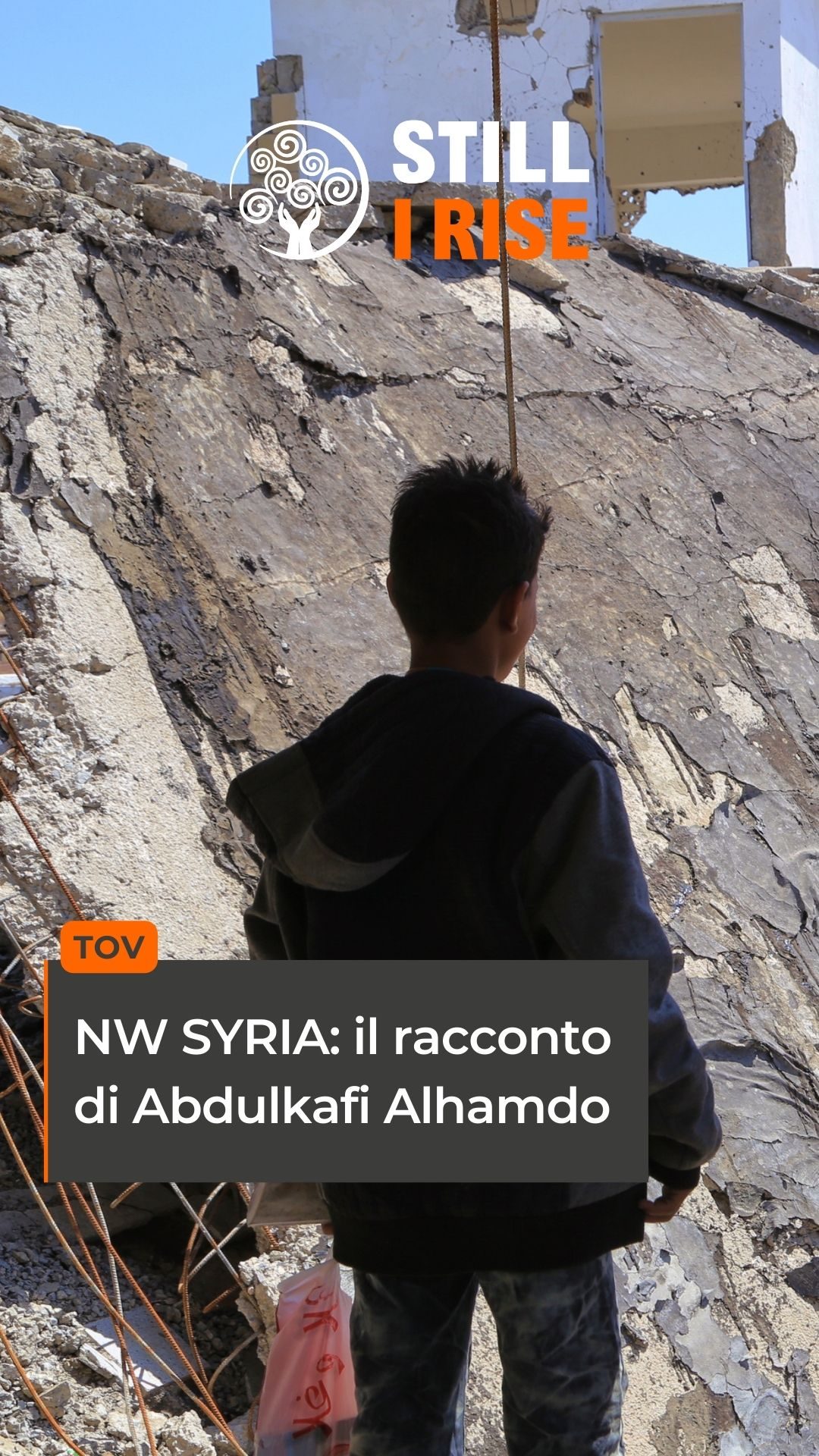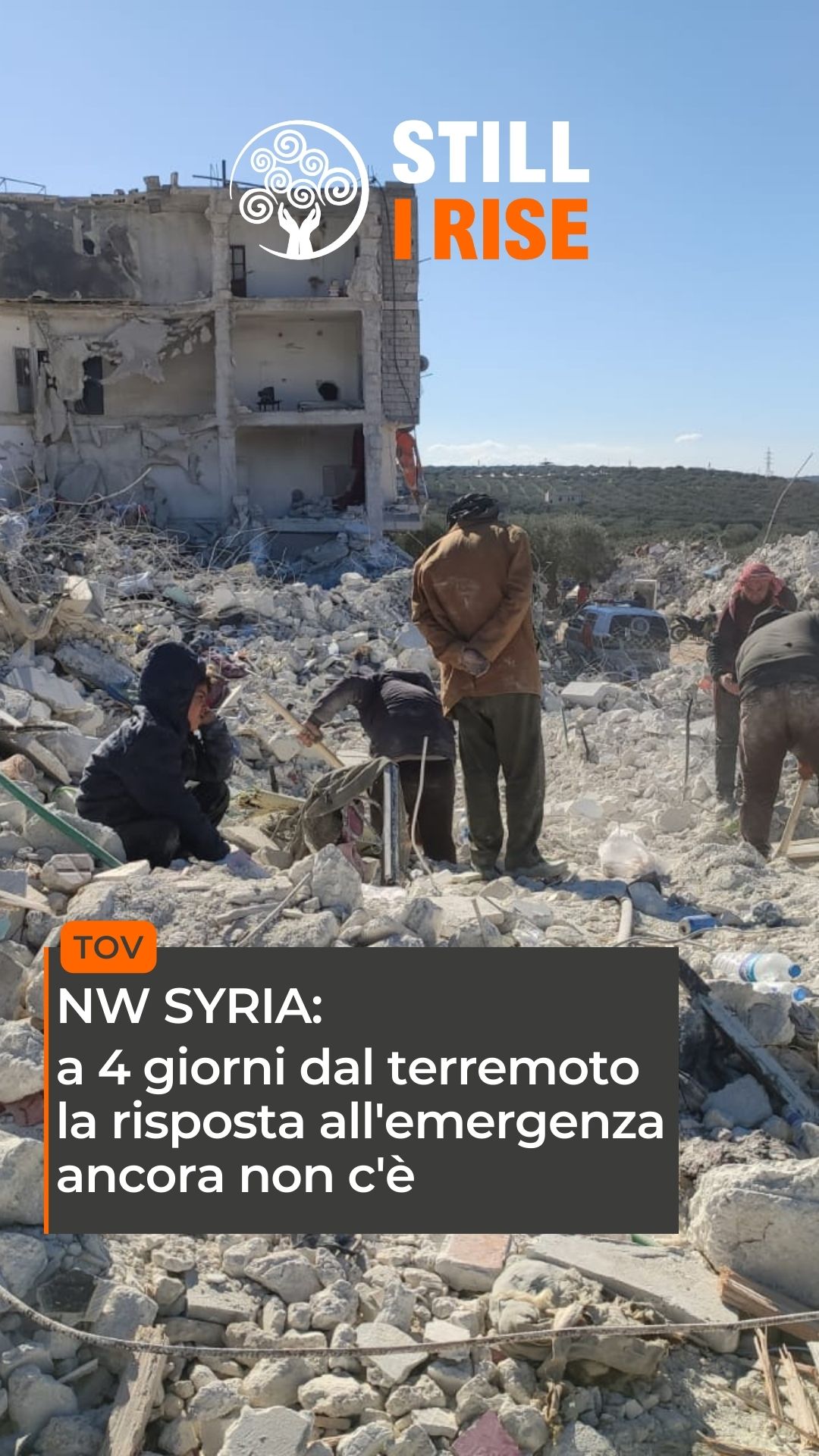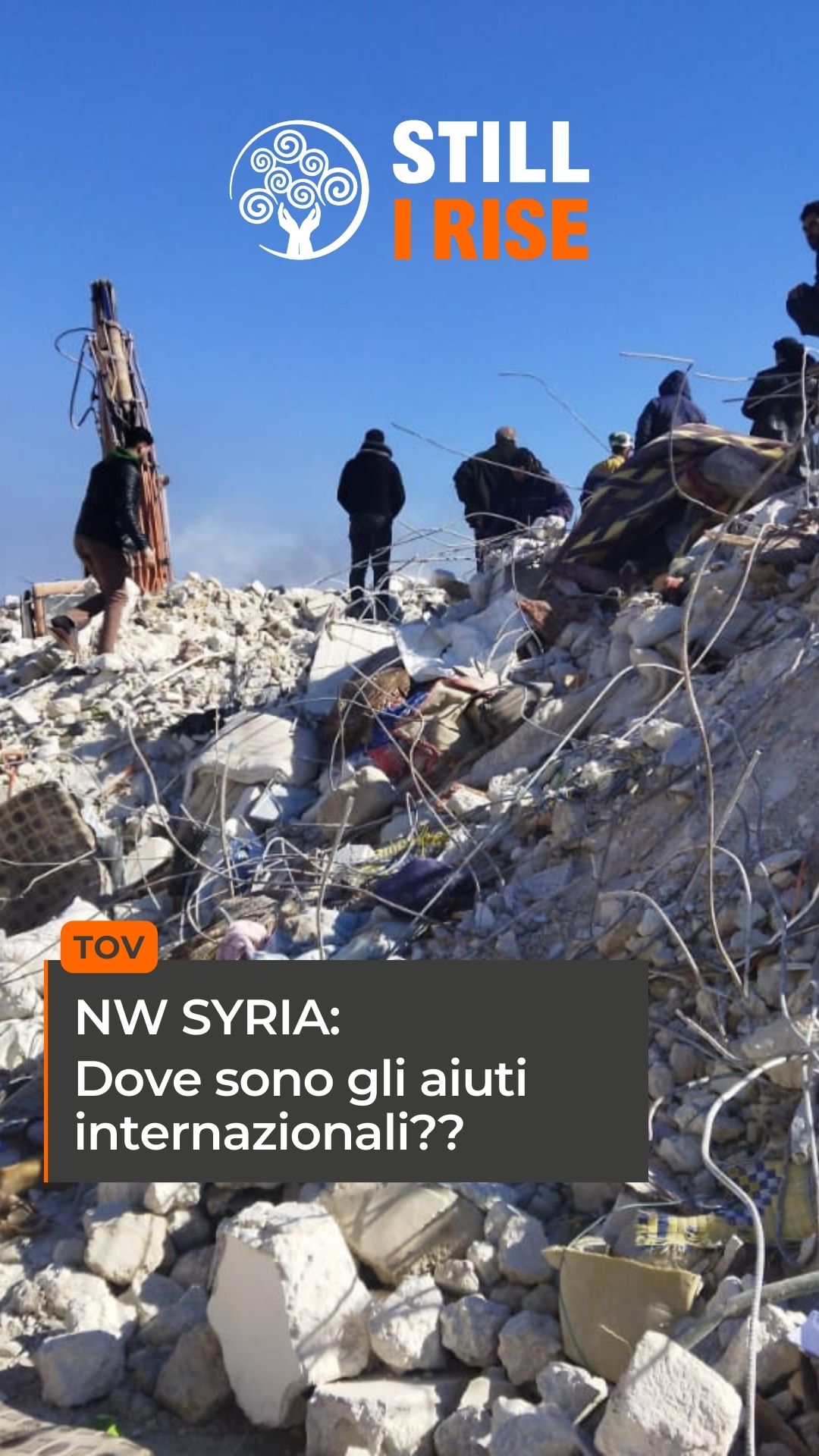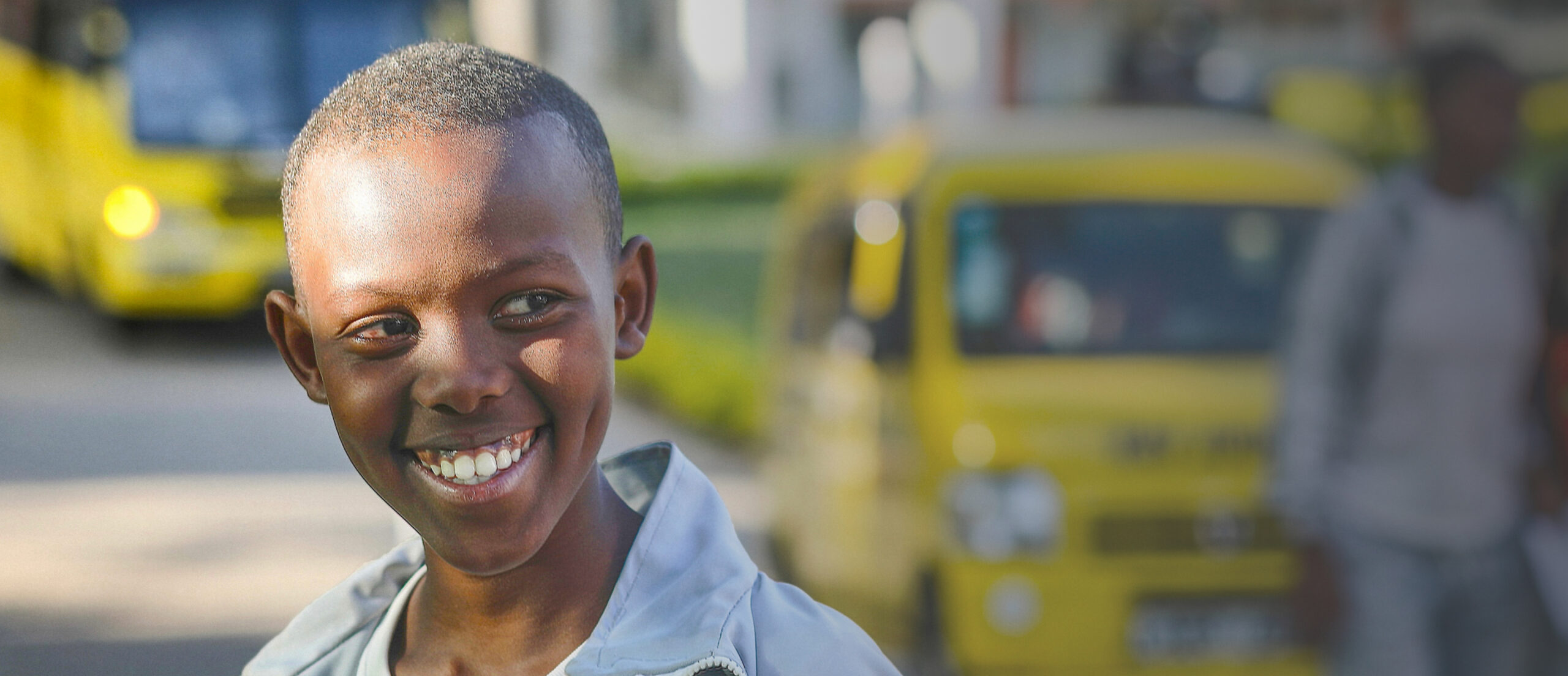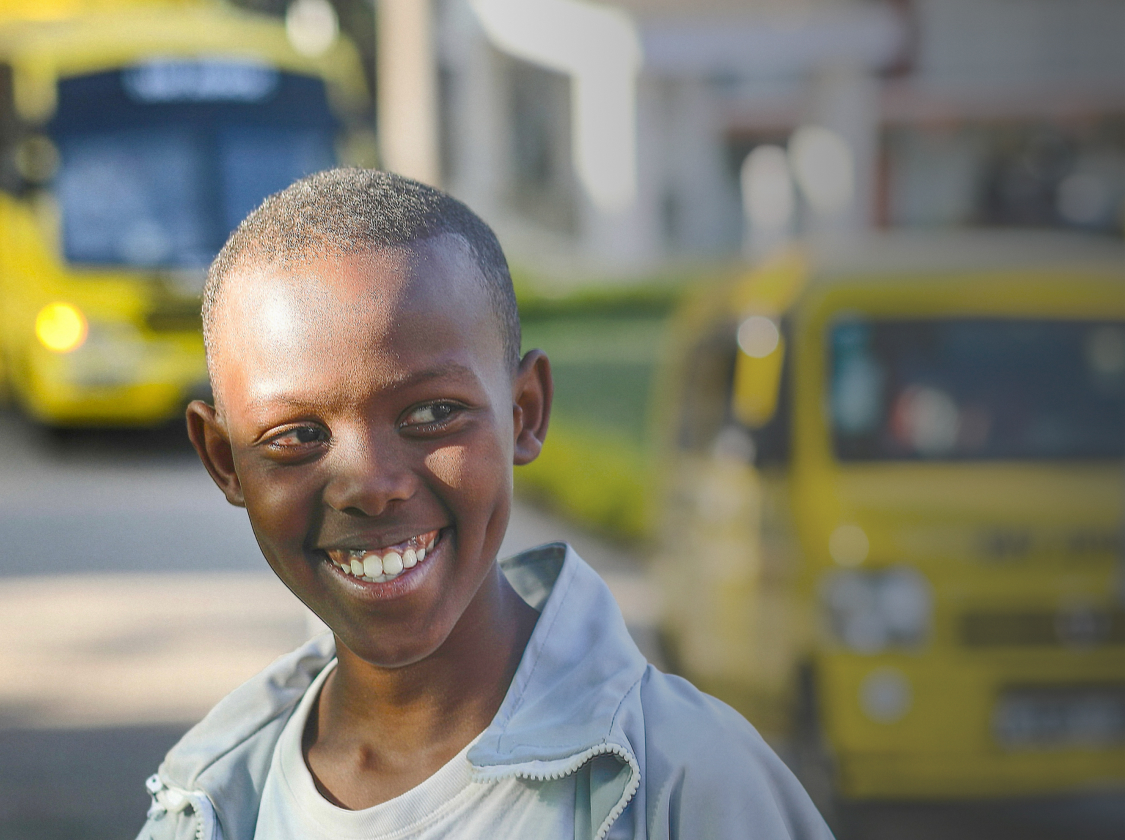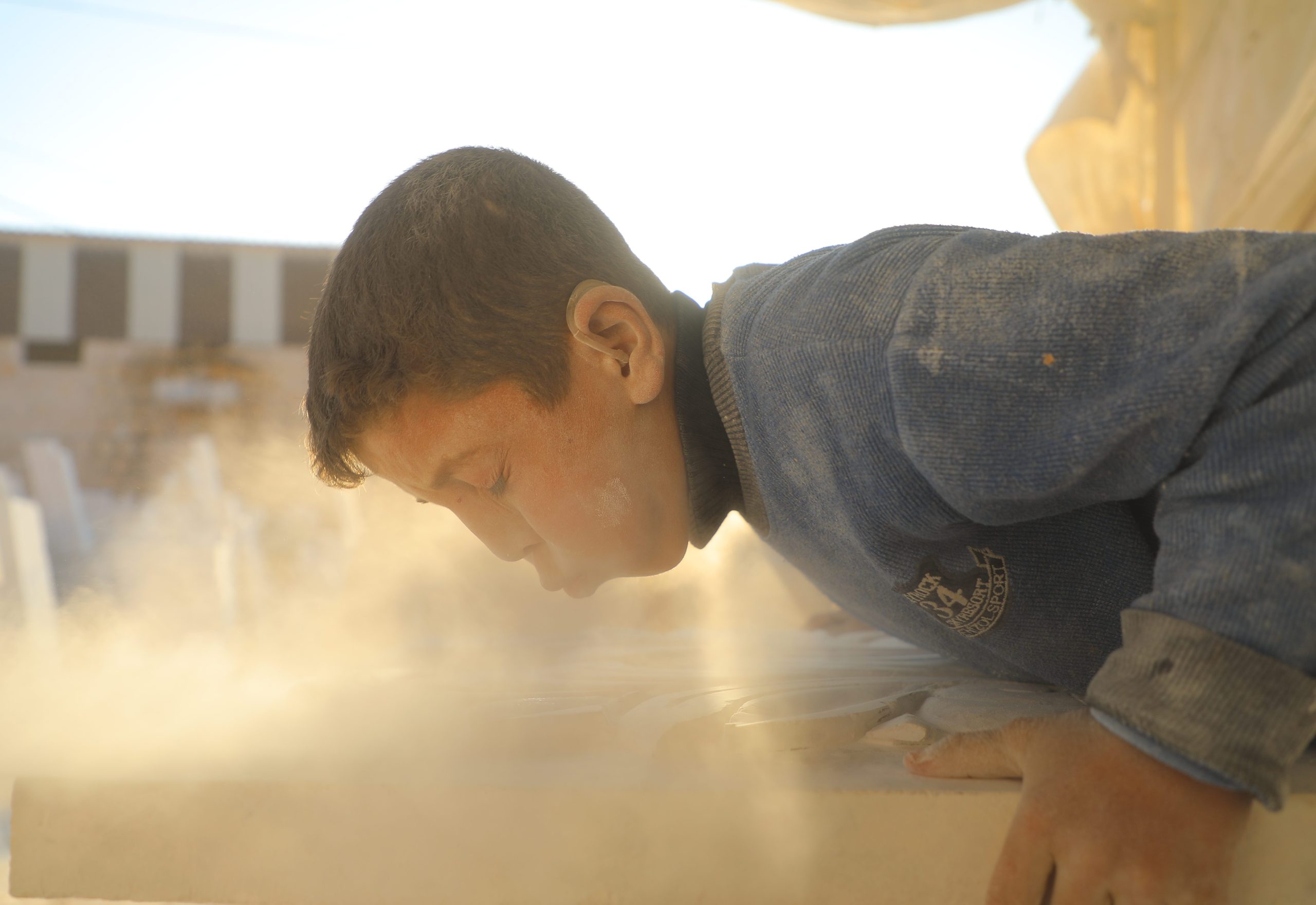
NORTH WEST
SYRIA
Bringing visibility to a forgotten conflict
The humanitarian situation
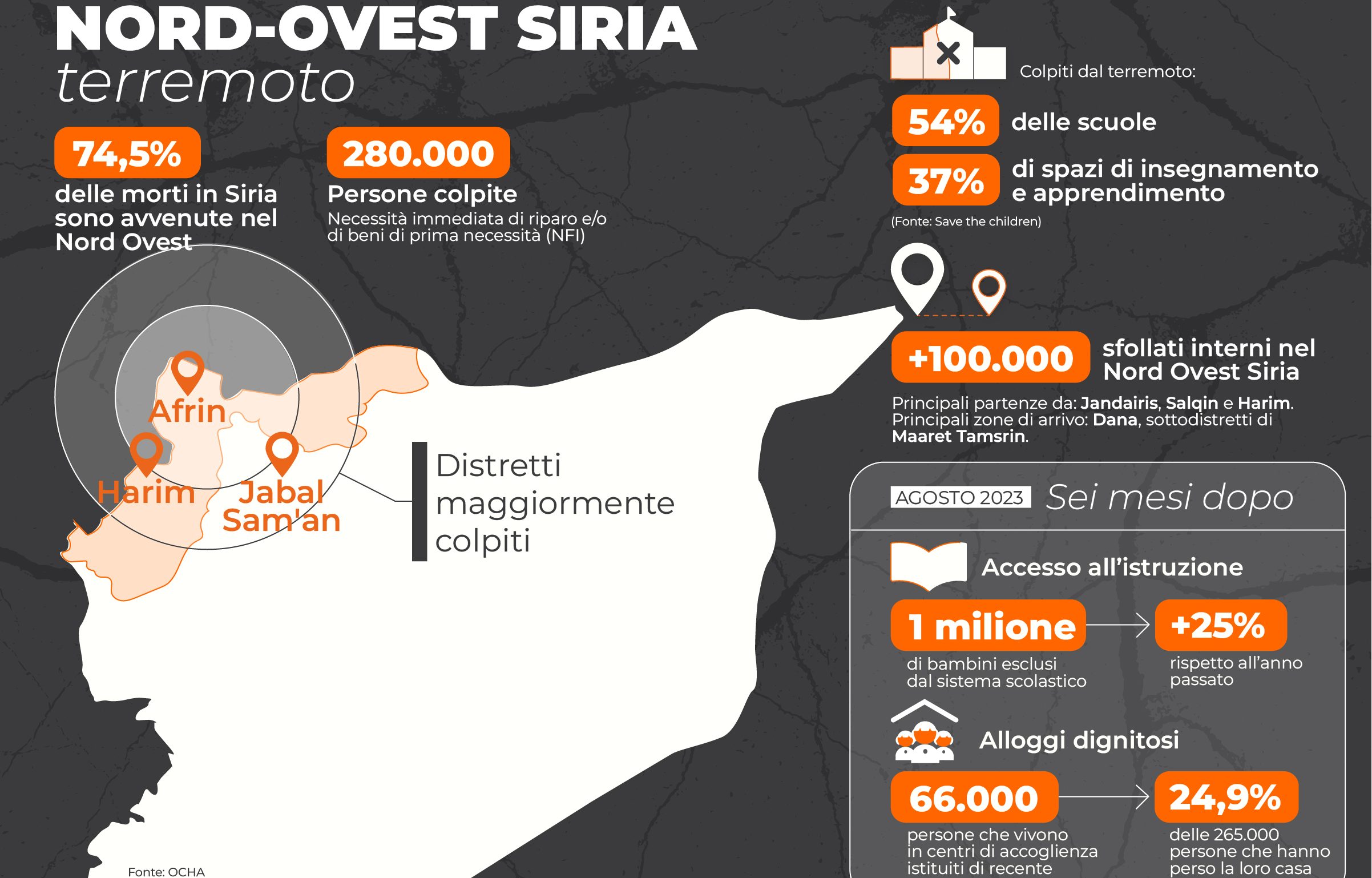
The earthquake
The earthquake that took place on February 6, 2023 killed 6,392 people across Syria, with more than 70 percent of the deaths in opposition-controlled areas in the northwest of the country. Here the border crossing with Turkey remained closed and no support arrived for days. Several people lost their lives under the rubble after the earthquake because no aid was allowed in to save them.
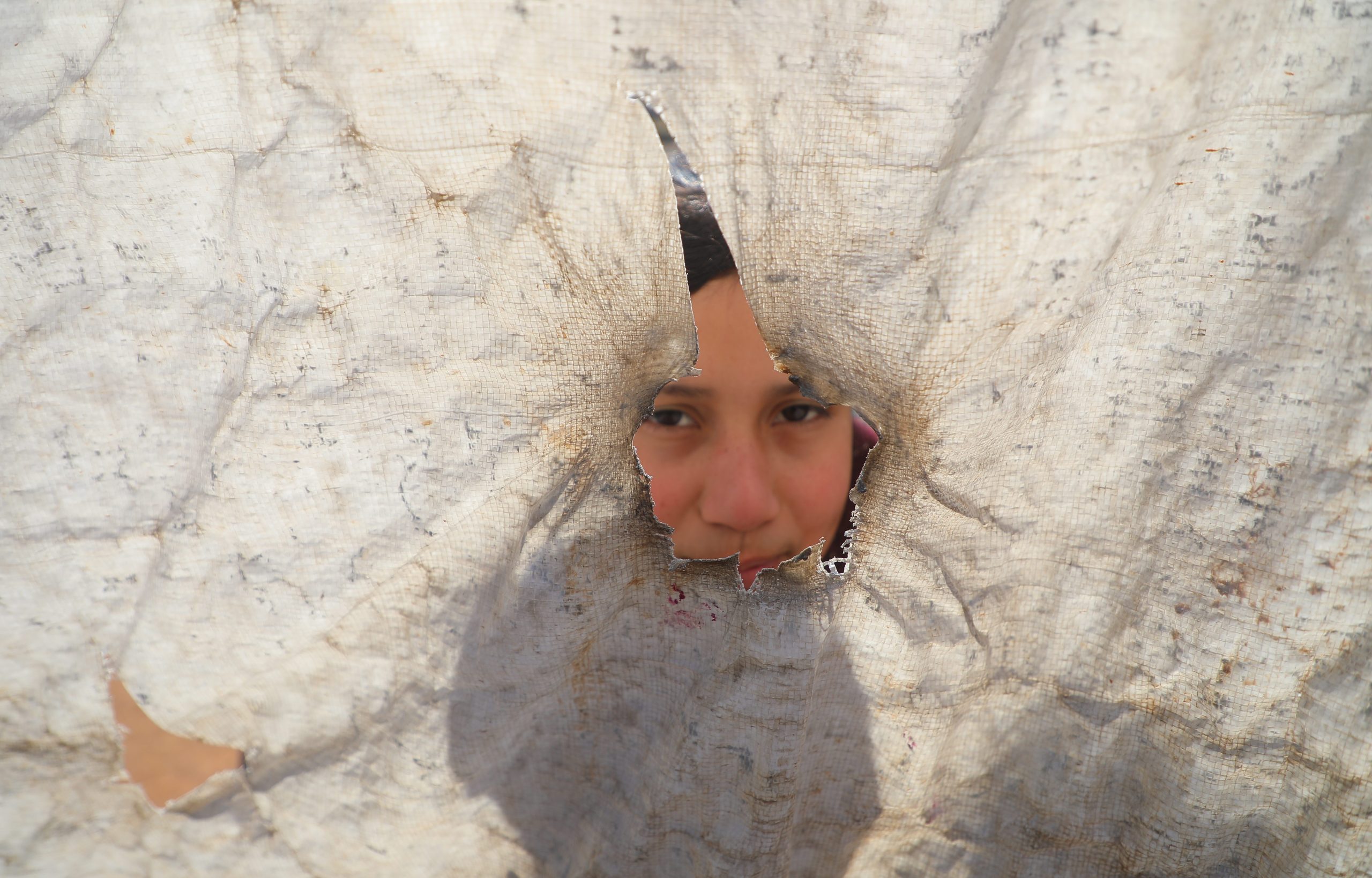
Collapse of the education system
The collapse of the school system reflects the pervasive impact of the conflict on the present and future. With nearly 2 million children of school age, nearly half in northwest Syria are deprived of education. Economic pressures, combined with a shortage of schools and staff, contribute to a significant drop in attendance during adolescence making education a privilege for the few rather than a universal right.
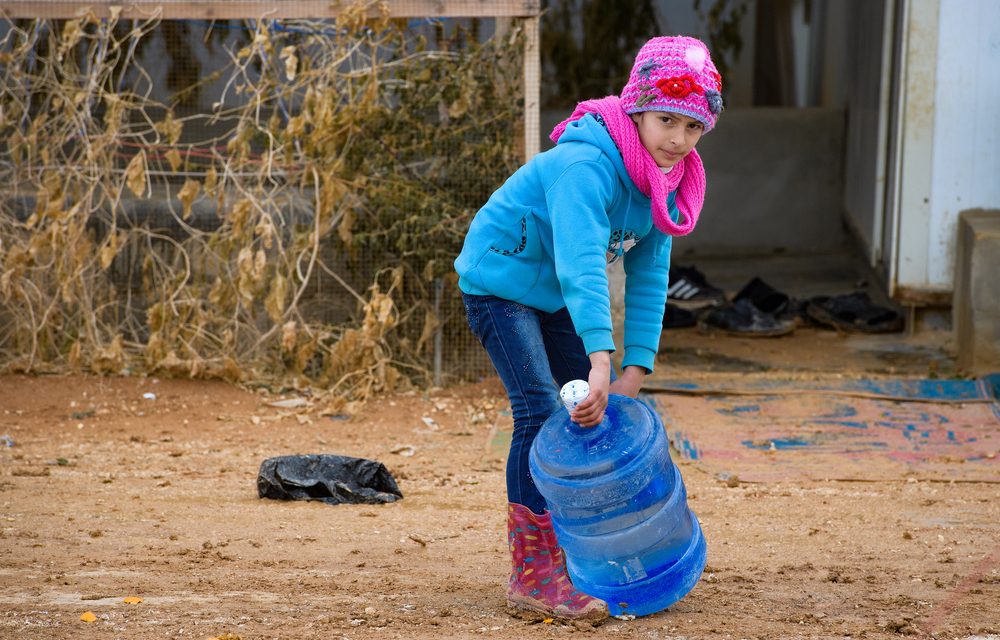
Health emergency
Health facilities in northwestern Syria are frequent targets of military attacks. International isolation exacerbates the chronic shortage of facilities, personnel and equipment. Poor water and sanitation systems, collapsing disease monitoring health systems, and deteriorating socioeconomic conditions exacerbate the situation.
